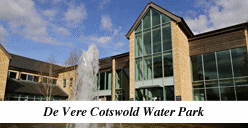In case you missed it see what’s in this section
Let's Talk
Tenant injuries: What are landlords responsible for?
As a landlord, renting out a property brings with it several important responsibilities. You are providing your tenant(s) with a place to call home or do business. Either way, it means your obligation as the property owner is to ensure their health, safety and wellbeing for the duration of their tenancy. Of course, accidents can happen. But it's what landlords do (or don't do) that will decide how much – if at all – they are liable for injuries sustained by the tenant(s)
How commercial landlords can mitigate risks
The UK has strict laws covering both landlord responsibilities and safety in the workplace. But these laws can't entirely stop accidents and injuries. What they do is help lower the chances of them happening at all. Still, the Labour Force Survey reveals that 441,000 people suffered an injury at work in 2020-21 – proof that nothing can be left to chance as a commercial landlord.
The nature of these injuries, of course, are varied – and so too are the causes and the parties deemed to be at fault. By fulfilling your duties to ensure a property is fit for humans to use, it means your liability is reduced. In addition, commercial landlord insurance can provide critical cover if anything does go wrong during a tenancy.
What are commercial landlords responsible for?
Ventilation
A commercial property needs to be properly ventilated. A lack of fresh air and the risk of damp conditions can lead to serious health issues – particularly in kitchen or bathroom facilities. Landlords can also be liable if poor ventilation exacerbates existing health concerns.
Burns
If rented commercial premises have hot water systems, landlords are responsible for ensuring the upkeep and safety of them. If not (and it can be proven so), you can be held liable for any burns or scolds that are sustained due to excessive temperature or poor maintenance.
Slips, trips and falls
A slip, trip or fall has the potential to cause serious and life-changing injuries. In a commercial property, there are many opportunities for such accidents to occur – especially when a landlord fails in their duty. This includes faulty stair/handrails, uneven flooring, or dimly lit areas where potential trip hazards can't be seen.
Carbon monoxide poisoning
Just like domestic rental properties, commercial premises may depend on gas boilers to supply heating and hot water. There can also be appliances, i.e. cookers, that are powered by gas. For all of these pieces of equipment, landlords are duty-bound to ensure their safety. This includes having them checked every 12 months to prevent age-related faults.
The risk of not doing so is that tenants can be exposed to carbon monoxide (CO). In the most severe cases, CO poisoning can lead to brain damage or even death. With such a high level of risk, it simply isn't worth landlords gambling on the health and safety of their tenant(s).
Weather in Swindon
Listings





















